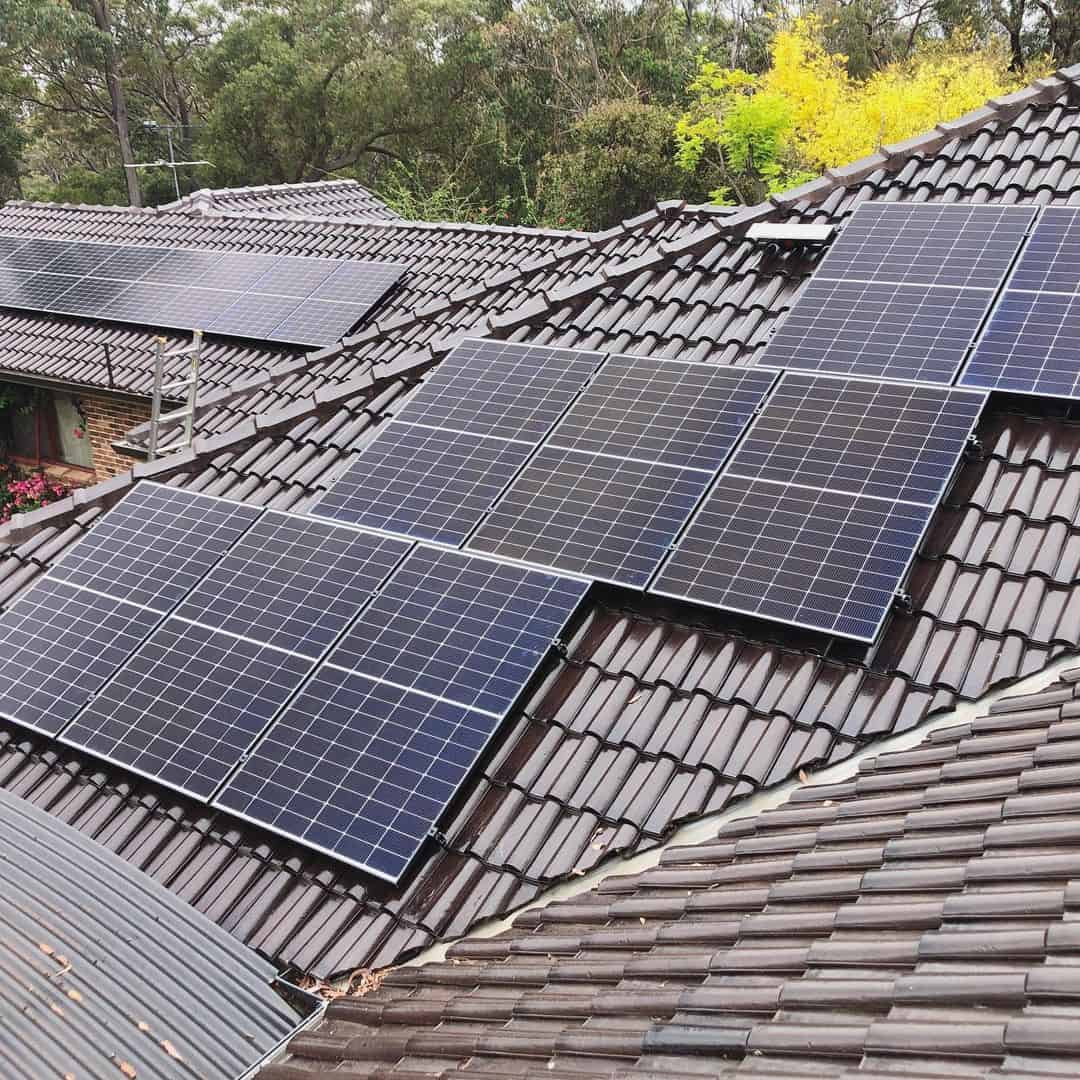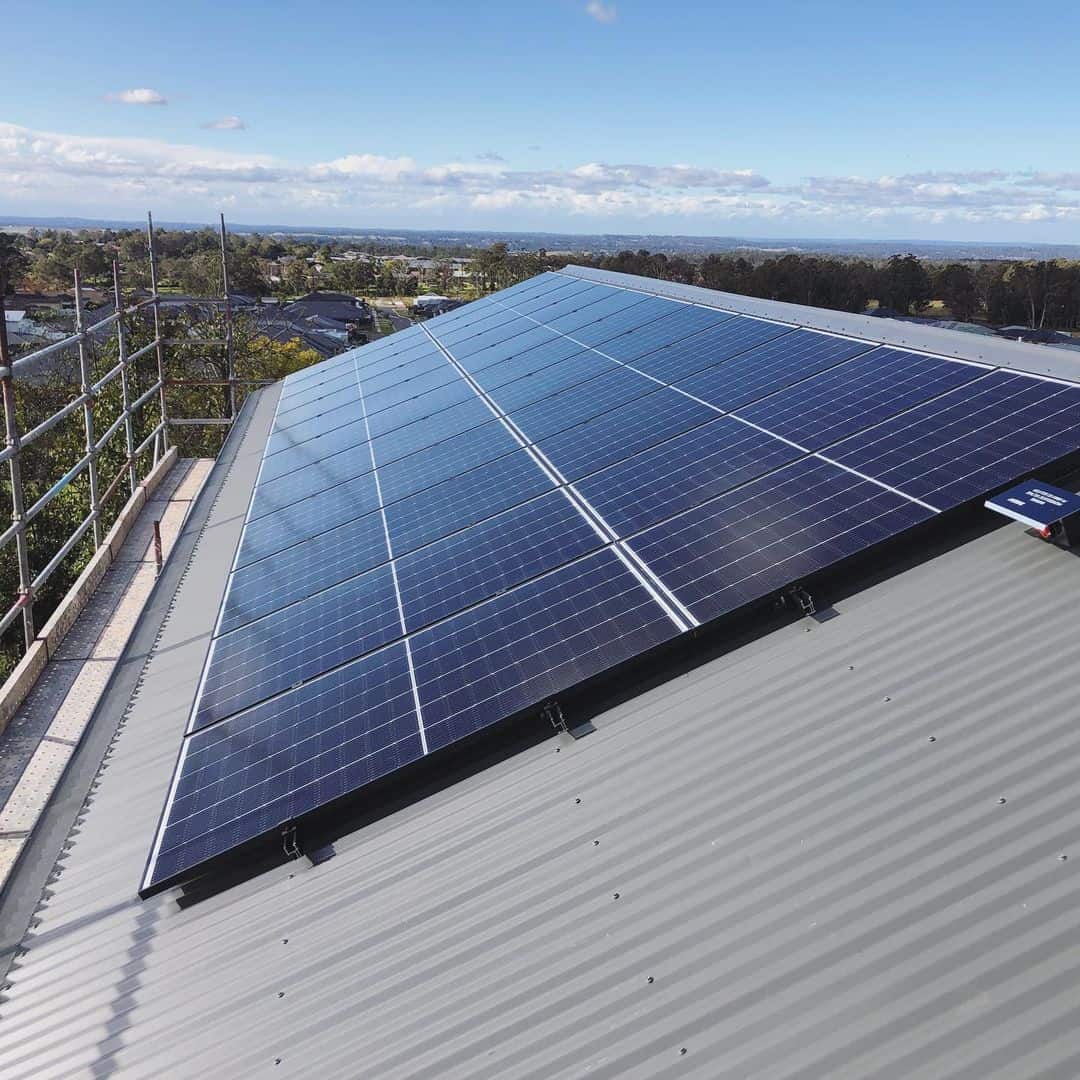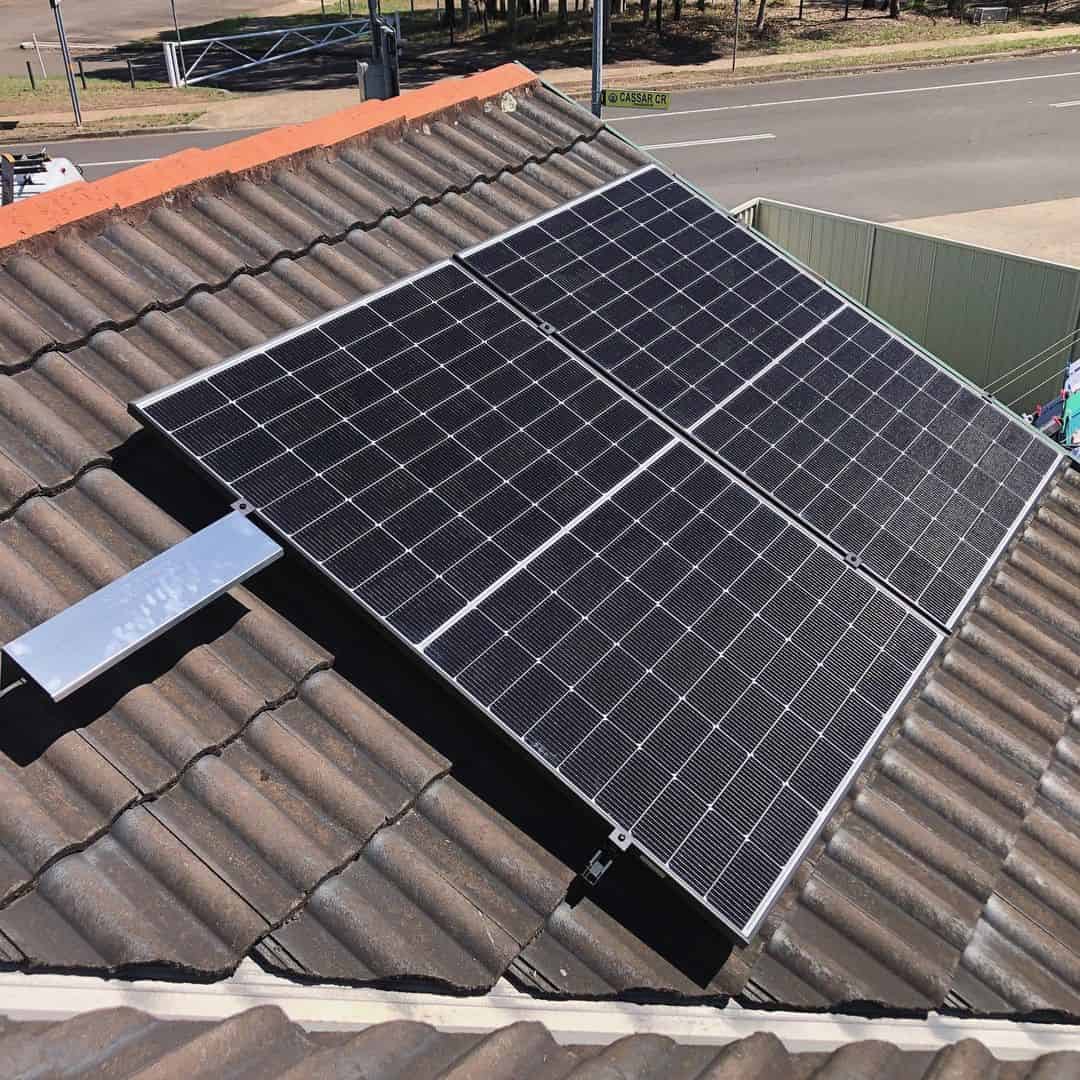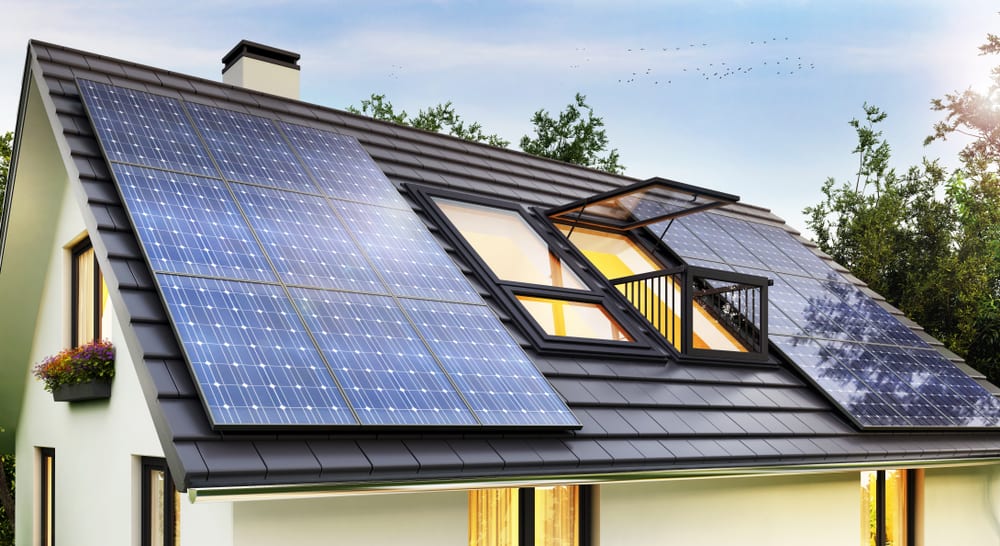What is a solar battery? This is one of the questions that most homeowners have before they install a solar power system. You will be given three choices: Grid-tied system, Off-Grid, and Hybrid.
Solar batteries are only used for Off-Grid and Hybrid solar power systems. If you plan to invest in an Off-grid or hybrid solar power system, you need to know how solar batteries work and how you can fully benefit from their features.
We answered some of the common questions of homeowners about solar batteries and their importance to your solar power system.
Table of Contents
What is Solar Battery and How Does it Work?
A solar battery is an energy storage for your solar power system. The excess electricity that your solar panels generate would be stored in the solar battery. They are also known as deep-cycle batteries because of their ability to charge and discharge electricity.
The energy from your solar battery can be used in different circumstances:
- You can use this when your solar panels do not make sufficient electricity to power the electrical appliances in your home.
- The energy from your solar battery can also be used if you are saving money on your electricity bill. You can use the energy from your solar battery to power up electrical appliances that use a lot of energy like your HVAC system.
- You can use the energy from your solar battery can also be used during power outages. If there are natural calamities, you can use the energy as backup power for the appliances in your home.
What are the Different Types of Solar Batteries?
If you decided to get an off-grid or hybrid system, you need to decide on the type of battery you’re going to use. We listed down the four types of batteries that you can choose from.
1. Lead-Acid
Lead-acid batteries have been used for many years in automotive and industrial applications. Although it has a low energy density, it’s cost-effective and very reliable so it is also one of the most common choices when you want a solar panel setup for your home.
These batteries come in sealed and flooded varieties and there are shallow or deep cycles depending on how you plan to use them.
This is a good choice if you want solar battery storage that is not too expensive. It can’t hold a lot of energy so it makes sense that it’s cheaper compared to the others.
2. Lithium-ion
Lithium-ion batteries are currently the best option for residential solar power systems. It has the newest technology among the other battery types and it offers a high energy density, which means that it can hold more energy.
If you are going to use a lithium-ion battery, make sure that the installers know what they are doing.
This type of battery is also smaller and lighter, which makes it a more efficient option for homeowners. The best thing about this is its Depth of Discharge (DoD). You can access more energy stored in the battery before it needs to be recharged.
However, compared to lead-acid batteries, it is more expensive. You will have to spend more on your solar power system if you are going to choose a lithium-ion battery. Also, if it’s improperly installed, there is a chance that it would catch fire.
3. Nickel-Cadmium
This type of battery is not often used in residential solar power systems. You can use them being used in airlines and other industrial applications. This type of battery is known for its high durability and it can still function under extreme temperatures.
One of the best things about a Nickel-Cadmium battery is you won’t have to maintain it regularly. The only issue with this type of battery is its highly toxic element. If you don’t dispose of it properly, it can have an impact on the environment.
It is also more expensive than typical batteries used for residential settings. Since it is made specifically for industrial use, you can expect that the price would be two or three times a normal solar battery.

nepeansolar
4. Flow
Flow batteries are also a good option if you want a solar battery. This type of battery offers high efficiency and a depth of discharge of 100%, but it has a low energy density. It is like a combination of a lead-acid and Lithium-ion battery.
Since it’s like a hybrid battery, you can expect that it is more expensive than the other options. If you want to store more energy, you will have to buy a bigger solar battery storage, which is why they are very expensive.
Flow batteries are suited for larger spaces so if you have a small company, restaurant, or any type of business establishment, this is the battery that you should use. Despite its initial cost, it is more efficient and has a bigger battery capacity.
5. Lithium Iron Phosphate
The LFP battery is actually a type of lithium-ion battery but instead of lithium and cobalt oxide, it is using, lithium, iron, and phosphate. LFP batteries are considered a low-cost and low-toxicity option so it is a better choice than lithium-ion.
Is Solar Battery Suitable for your Home?
Although solar batteries offer a wide range of benefits, there are circumstances where a grid-tied solar PV system would be a better option.
For some homeowners, a battery is not necessary since they are already tied to their local utility. It provides consistent electricity to their homes with minimal power outages. If you have a reliable local utility, it will serve as your energy storage system.
The local utility in your area will take in the excess electricity from your solar power system when you produce more. It will provide electricity to your home if the panels are not generating enough energy.
However, this is only applicable if you are relying 100% on your solar panel system. It means that all of the electricity in your home is being supplied by your solar panels. If you don’t have a lot of money to invest in a full solar panel system, you need a solar battery where you can keep excess electricity.

nepeansolar
What is an AC and DC Coupled Storage?
If you plan to invest in a solar battery, you need to understand how coupling works. You have two options on how you want the solar panels to be wired on your solar batteries:
- Alternating Current or AC coupling
- Direct Current or DC coupling
The solar cells create DC electricity and it should be converted to AC electricity before your home can use the stored energy. However, solar batteries are only capable of strong DC electricity. Here are the two types of coupled storage that you can consider.
DC Coupled Storage
If you are going to use DC coupling, the DC electricity from the panels will go to a charge controller and it will go directly to a solar battery. The conversion will only happen when the battery sends the stored energy to your home or back to the grid.
This is more efficient since the electricity will only be converted once.
AC Coupled Storage
In an AC-coupled battery, the DC electricity will go to an inverter first and it will be converted to AC electricity. Your appliances can immediately use this energy. The AC electricity can also be sent to a different inverter so it can be stored in your solar battery.
If you need to use the battery, the DC electricity will then go to an inverter again so it would be converted to AC.

nepeansolar
What are the Things to Consider When Choosing a Solar Battery?
The performance of your solar battery would depend on several factors so you need to be very careful when choosing one. We listed down some of the important things to consider if you want to invest in a solar battery system.
1. Type of Battery
We’ve already discussed the different types of solar batteries above to help you pick the right one. If you’re on a budget, the lead-acid battery would be a good choice. If you want something longer-lasting, a lithium-ion battery is your best bet.
For larger establishments, a Nickel-Cadmium or flow battery would be a better choice as they are made specifically for bigger spaces.
2. Depth of Discharge (DoD)
Depth of Discharge (DoD) is the amount of electricity used before the battery would be recharged. This means that the deeper the solar battery is discharged, the shorter its battery life would be.
Every type of battery comes with a cycle life estimate. This is the number of cycles the battery would last depending on its DoD. They also have a recommended depth of discharge, which means that if you go beyond the recommended value, the lifespan of the battery will be affected.
You need to look for a solar battery that can last for a long time even if you deeply discharge it. For residential, lithium-ion batteries are the best. Lead-acid batteries have lower tolerance against deep discharges. Their lifespan would be severely affected every time you deeply discharge a lead-acid battery.
3. Battery Life
Every type of battery actually has a life expectancy. If you follow the instructions and you don’t deeply discharge your batteries, they can last for a long time.
If properly used, lead-acid batteries can last up to 10 years. Lithium-ion batteries, on the other hand, can last up to 15 years. Take note that its battery life would depend on how you use it and the maintenance that you perform.
Final Thoughts
Knowing what solar batteries are capable of and the benefits that they can provide to you as the homeowner is very important before you decide to invest in them. Remember that solar batteries are very expensive.
If you think that a grid-tied solar system is good for you, then you won’t need to invest in a battery. You should only get a battery if you’re grid-tied system will not work for your current circumstances.
